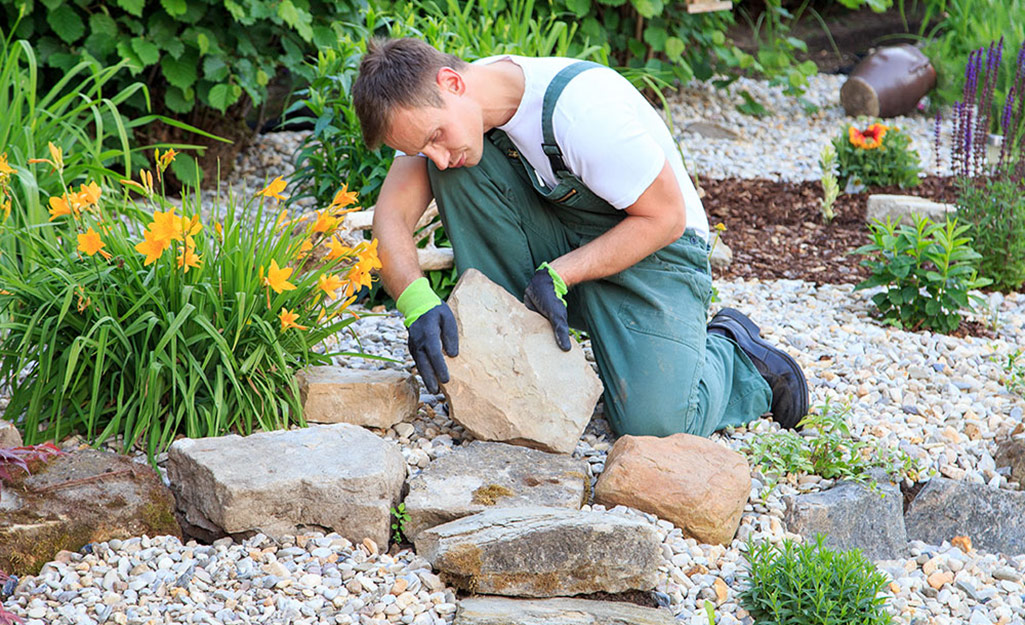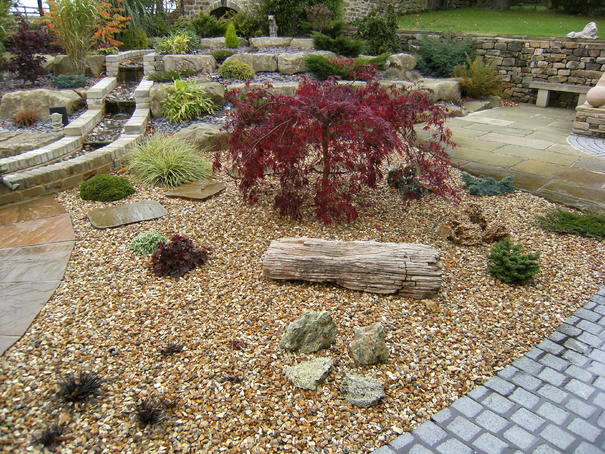When it comes to enhancing your garden or yard, decorative stones are an excellent choice that combines both aesthetic appeal and functionality. In my experience as a gardening enthusiast, using stones not only beautified my outdoor space but also provided countless practical benefits that improved the overall atmosphere of my home. Dive into this comprehensive guide, where I’ll share tips, ideas, and my personal experiences with decorative stones in landscaping.
What Are Decorative Stones?
Decorative stones are natural or manufactured stones used in landscaping and garden design to enhance beauty and add functionality. Available in various sizes, shapes, and colors, these stones can serve numerous purposes such as ground cover, accent features, or hardscaping elements. The use of decorative stones can transform a mundane yard into a visually stunning outdoor space.
Types of Decorative Stones
Understanding the different types of decorative stones can help you choose the right materials for your landscaping project.
| Type of Stone | Description | Best Uses | Color Variations |
|---|---|---|---|
| River Rock | Smooth and rounded stones, usually found in river beds. | Pathways, fish ponds, and decorative mulch. | Natural browns, grays, and earthy tones. |
| Pea Gravel | Small, rounded stones that are often used for drainage. | Walkways, driveways, and flower beds. | Variety of colors including tan, gray, and multicolored. |
| Crushed Stone | Small jagged pieces of stone, typically used as a base material. | Driveways, paths, and as a base for other stones. | Commonly gray but can come in other colors. |
| Granite Chips | Small pieces of granite that are angular and colorful. | Landscaping borders, flower beds, and pathways. | Flecks of pinks, blacks, and grays. |
| Lava Rock | Lightweight, porous stones produced by volcanic activity. | Fire pits, gardens, and flowerbeds. | Dark red and black hues. |
Why Choose Decorative Stones for Landscaping?
Decorative stones can offer numerous benefits for your landscaping needs. Here are some compelling reasons to consider:

1. Aesthetic Appeal
One of the most obvious benefits of decorative stones is their visual appeal. They can add color, texture, and contrast to your garden. Over the years, I’ve found that the right mix of stones can create focal points in a garden that draw the eye.
2. Low Maintenance
Unlike traditional grass or flower beds, decorative stones require minimal upkeep. You won’t need to mow or prune, and they are typically resistant to pests and diseases.

3. Versatility
Stones can be used in various ways, making them incredibly versatile. Whether you’re looking to create a pathway, a rock garden, or a decorative feature, there’s a type of stone suitable for any application.
4. Erosion Control
Using decorative stones can help prevent soil erosion in sloped areas. I’ve noticed significant improvements in the stability of my garden beds since incorporating stones strategically.
.jpg)
5. Drainage Improvement
Decorative stones, such as gravel or river rock, improve drainage in gardens, reducing the risk of water pooling. This was a game-changer for me during heavy rains.
How to Incorporate Decorative Stones in Your Landscaping
Now that you understand the types and benefits of decorative stones, let’s look at creative ways to incorporate them into your landscape.

1. Rock Gardens
Rock gardens are a beautiful way to showcase a variety of stones and plants together. Arrange large stones with smaller rocks to create texture, and plant drought-resistant plants for added color and interest.
2. Pathways and Walkways
Create visually appealing paths using decorative stones. For a rustic look, consider using larger stones or gravel. For a polished finish, opt for even-sized stones.

3. Edging and Borders
Use stones to create borders around flower beds or along driveways. This not only defines spaces but also adds an elegant touch.
4. Focal Points
Large decorative stones can serve as focal points in your garden. Consider a beautiful boulder or an artistic stone arrangement to draw attention.

5. Water Features
Incorporating stones in water features like ponds or fountains can enhance the overall aesthetic. Use smooth river stones to create a serene atmosphere around the water.
Tips for Choosing the Right Decorative Stones
Here are some tips to consider when selecting decorative stones for landscaping:

1. Consider the Color Palette
Choose stones that complement the colors of your home and garden plants. A cohesive color scheme can make your outdoor space feel harmonious.
2. Think About Size and Scale
Ensure the size of the stones matches the scale of your garden. Large stones can overpower small spaces, while tiny stones might look lost in larger gardens.
3. Assess Functional Needs
Think about how you plan to use the stones. For instance, if you need good drainage, gravel or river rock would be ideal.
4. Test the Texture
Some stones can be sharp or rough. Consider who will be using the space. For children or pets, smoother stones are often a safer choice.
Cost Considerations in Decorative Stones Landscaping
The cost of decorative stones can vary widely based on the type of stone, size, and sourcing. Here’s a general overview of costs:
| Stone Type | Average Cost per Ton | Installation Difficulty | Durability |
|---|---|---|---|
| River Rock | $50 – $120 | Easy | High |
| Pea Gravel | $30 – $60 | Easy | Medium |
| Crushed Stone | $40 – $90 | Medium | High |
| Granite Chips | $70 – $150 | Medium | High |
| Lava Rock | $80 – $160 | Medium | High |
Pros and Cons of Using Decorative Stones
Pros
- Low maintenance and long-lasting.
- Variety of aesthetic options.
- Helps with drainage and erosion control.
- Versatile applications in landscaping.
Cons
- Initial cost can be high depending on the type.
- Some stones can be sharp and pose a hazard.
- May require heavy machinery for installation.
- Can retain heat, raising the temperature in hot climates.
Maintaining Your Decorative Stones
Proper maintenance will keep your decorative stones looking their best. Here are some tips:
1. Regular Cleaning
Use a broom or leaf blower to remove debris and leaves. Occasionally, you may want to rinse the stones with water to remove dust and dirt.
2. Weed Control
Weeds can sneak through stones, so applying a landscaping fabric underneath can help reduce growth. Hand-pulling weeds is often the most efficient method for maintaining aesthetics.
3. Resealing (if applicable)
For certain manufactured stones, resealing may be necessary occasionally to maintain color and prevent weathering.
FAQs about Decorative Stones Landscaping
1. What types of decorative stones are best for gardens?
River rock, pea gravel, and crushed stone are popular choices for gardens due to their durability and aesthetic appeal.
2. Can decorative stones help with drainage issues?
Yes! Using stones like gravel or river rock can significantly improve drainage in your garden or landscape.
3. How do I choose the right size of decorative stones?
Consider the scale of your garden. Larger stones tend to suit expansive spaces, while smaller stones work well in tighter areas.
4. Are decorative stones cost-effective?
While the initial cost can be high, their long-lasting nature and low maintenance can make them cost-effective in the long run.
5. Do I need to worry about weeds with decorative stones?
Yes, weeds can grow through stones. However, using landscaping fabric underneath them can help minimize this issue.
Conclusion
Incorporating decorative stones into your landscaping can transform the look and functionality of your outdoor space. From enhancing visual appeal to providing practical benefits like drainage and erosion control, the use of stones is a wise investment. Whether you are planning a rock garden, building pathways, or just want to add some texture to your garden beds, there’s a decorative stone perfect for you. Remember to consider your specific needs and preferences to create a landscaping design that resonates with you. Happy landscaping!